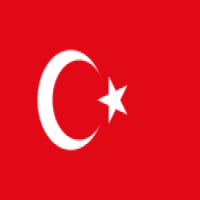Summary:
Turkey based university has developed a new advanced ceramic dough formation methodology by polymer bridging through coagulation for rapid prototyping. Translation of ceramics manufacturing to Industry 4.0 significantly lags behind other materials. Building upon the current framework of EFPF (European Factory Platform), the university generated automated route for the green machining of yttria-stabilized zirconia as a forefront showcase for the integration of high-performance ceramics to EFPF.
Description:
Green machining is a rapid and cost-effective method for near-net fabrication of ceramics. Compared to brittle sintered parts, green bodies necessitate much lower forces, are less prone to cracking, and do not lead to tool wear. Green bodies that can withstand ductile deformation during machining are formed through cold isostatic pressing (CIP) gel casting, and protein coagulation. CIP realizes machinable green bodies by compacting ceramic particles and binders under pressure. This method requires elastomeric molds to hold the formulation and a set up to apply isostatic pressure, mostly via i) immersion of the mold into a water bath (wet bag) and pressurizing the system or ii) compressing the mold. On the other hand, gel casting eliminates the need for a mold and a setup and generates a chemically or physically crosslinked polymer matrix around ceramic particles that is later removed during sintering. However, the toxicity of the polymer of choice, poly(acrylamide), prevents the wide adaptation of this method. While other materials, such as cellulose derivatives, are suggested, there is still a need for mixing the particles and network-forming materials in ball milling and sustaining a controlled environment. Protein coagulation requires the use of binding materials (e.g., egg white and ovalbumin) up to 20 vol. %. All of these binder systems involve the optimization of a compositional formulation of multiple chemicals (e.g., binders, dispersants, and coagulants 5−20%, and gel casting monomers, 15−30%) and various steps to produce green bodies with uniform shrinking during and after sintering. An easy-to-implement benchtop process that does not comprise numerous steps, a controlled environment, and special equipment will significantly contribute to the rapid embodiment of complex ceramic objects.
The technology (Ceramic 4.0) is about laser machining of advanced ceramics at the green state. Ceramics 4.0 is a research initiative supported by the European Factory Platform that aims at the automation of green machining to enable mold-free fabrication and rapid prototyping of high performance ceramics. It builds upon the experience in material formulation, rheology and modelling and development of machining processes. This methodology is an inclusive, barrier-free, not-for profit environment set to drive innovation and create a commercial impact in the field of advanced ceramics.
In the laboratory, in a few easy to implement steps, nano-sized yttria-stabilized zirconia ceramic dough could be achieved. Thereafter, it was used in its dough form when it is semi-dry at a specific moisture content. All steps were carried out at room temperature, the processing times were included in parentheses for each step. The steps showed that the production is facile, time- and cost-efficient, and can be easily adapted/modified to fit desired needs. The entire operation was carried out in under 48 hours.
The university is seeking partnerships with companies have proven experience and knowledge to manufacture advanced or structural ceramics or apply them to their ceramic filters, thermocouple shielding, high temperature insulators or armors under license agreement, manufacturing or a commercial agreement with technical assistance.
Type (e.g. company, R&D institution…), field of industry and Role of Partner Sought:
- Type of partner sought and specific area of activity of the partner:
The partner sought is a company that has proven experience and knowledge to manufacture advanced or structural ceramics or apply them to their ceramic filters, thermocouple shielding, high temperature insulators or armors. In other words, a company which is a ceramic dough manufacturer or advanced/structural ceramic supplier or using this material. In such case, the cooperation will be formalized through a license agreement, manufacturing or a commercial agreement with technical assistance. The potential partners can be in ceramic manufacturing, electronics, defense, aviation, automotive sectors.
Stage of Development:
Prototype available for demonstration
IPR Status:
Patent(s) applied for but not yet granted
External code:
TOTR20211117001








